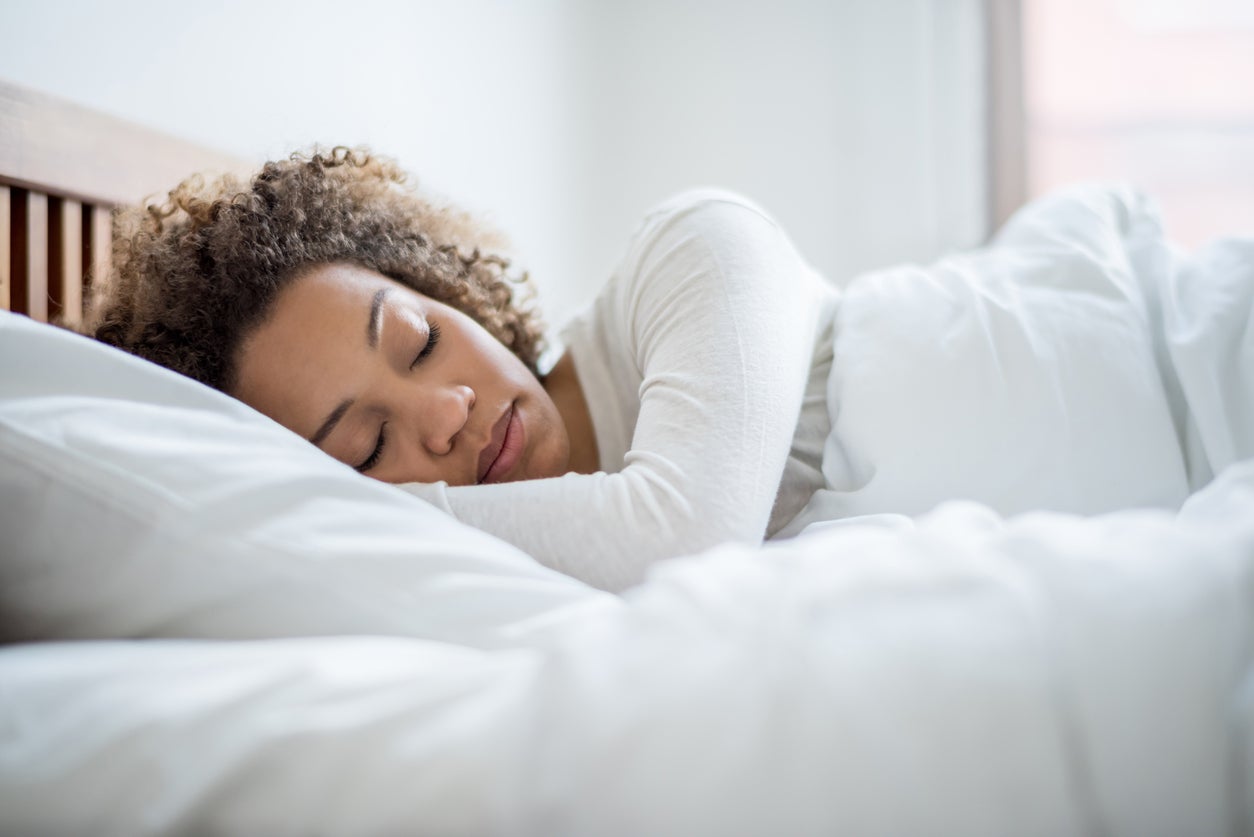Sleep myths debunked: Do you need eight hours a night and is coffee before bed a bad idea?
No, your sleeping position doesn't reveal anything about your personality

Sleep. We all know we need it. Most of us feel we don’t get enough.
We’re constantly tired - and tired of being tired - as we struggle to achieve those elusive eight hours’ sleep each night.
But it may be that stressing out about not getting enough sleep is actually what’s making you feel so exhausted, rather than the lack of sleep itself.
According to sleep expert Dr Neil Stanley, not everyone needs eight hours’ sleep a night - you just need to listen to your body.
This is just one of many sleep myths many of us believe to be true.
We spoke to Dr Stanley to de-bunk some of the most common misconceptions around sleep, and explain which ones are actually true:
1. Everybody needs eight hours of sleep
MYTH – “Sleep need is like height, we are all different and how much we need is to a large degree, genetically determined,” Dr Stanley told The Independent. “Eight hours is an average, not an ideal.
“The amount of sleep you need is the amount that allows you to be awake, alert and focused during the day. If you are feeling sleepy during the day then there is most likely an issue with the quality of sleep that you’ve had during the night.”
2. Quieting your mind is the most important thing to do to get off to sleep
FACT – “In order to get to sleep you need three things: a bedroom conducive to sleep’ a relaxed body and most importantly a quiet mind. You can’t go to sleep if your mind is racing and so anything you can do to slow it down will help you sleep.
“There is no magic way of doing this, you have to find what works for you, be that reading, a warm bath, camomile tea, mindfulness, aromatherapy or listening to Pink Floyd. It doesn’t matter what you do as long as it stops you worrying about the stresses of the day.”
3. Drinking coffee before bed will keep you awake at night
MYTH – “Some people are very sensitive to the effects of caffeine and for these people it’s important to avoid drinking beverages containing caffeine too close to bedtime - but there is no golden rule about this, just listen to your body.
“For some people the effects caused by caffeine are much lower and may not have any effects at all. If you have been drinking two strong black cups of coffee every evening for the past 40 years and you have just developed a sleeping problem, then it is almost certainly not the coffee.”
4. Exercising before bed will prevent you from being able to get to sleep
MYTH – “Exercising in the evening does not necessarily affect your ability to sleep positively or negatively. What is important is that you wind-down sufficiently after your exercise before getting into bed.”
5. We need less sleep as we get older
MYTH – “Sleep needs become fixed in our early twenties and don’t change that much as we get older. What does change with age is our ability to get the sleep we need. As we age our sleep becomes lighter and less refreshing, so we are more easily woken in the night and once awake there is little pressure to go back to sleep.”
6. Teenagers need to sleep more than adults
FACT – “Teenagers need more sleep because they are going through puberty which causes major physical and emotional changes to occur and sleep is important in these processes. Moreover, teenagers also need to go to sleep later than adults due to a shift in their circadian rhythms.”
7. When I am ill I should ‘soldier on’
MYTH – “When you’re ill your body needs rest to recuperate and fight the infection - being a ‘hero’ and continuing to go to work means that not only will it take you longer to get better but you will most likely infect your colleagues.
“In this cold and flu season, take to your bed, wrap up warm, have a hot soothing drink of lemon, honey and ginger and use a clinically proven product like Vicks VapoRub to ease your symptoms.”
8. You can catch up on sleep
MYTH – “If you have a bad night's’ sleep one night in the week, you can usually make up for this the following night. However, if you don’t get a lot of rest consistently during the week, this cannot be ‘made up’ by sleeping in at the weekend.
“Having a lie-in is better than nothing if you are sleep-deprived but you will never get back all the hours that you lost.”
9. Your sleep position tells you something about your personality
MYTH – “You make 12-20 major positional changes during the night so the position you fall asleep in and the position you wake up in is not the position you sleep in, therefore there is no correlation between your sleep position and your personality. If you’re a couple, this is not an indication of the strength of your relationship.”
10. Avoiding blue light will help me sleep
TRUE – “Exposure to blue light, such as that produced by smartphones, tablets, etc., before bed has been shown to disturb sleep and cause daytime sleepiness the next day. However, bright light has similar effects so even using a ‘paperwhite’ device has been shown to have negative effects. Hence the advice to avoid all screens for a least 30 minutes before sleep.”
Join our commenting forum
Join thought-provoking conversations, follow other Independent readers and see their replies
Comments
Bookmark popover
Removed from bookmarks